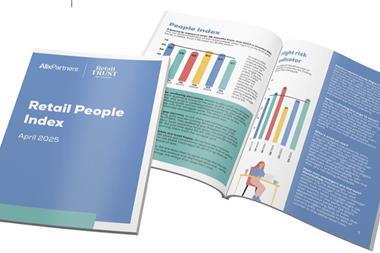A tax on sugary soft drinks forms the heart of the government’s long-awaited Childhood Obesity Strategy, which was published this morning.
The action plan, which had been pushed back following the EU referendum, aims to “significantly reduce” England’s rate of childhood obesity within the next 10 years.
The UK-wide levy on soft drink manufacturers and importers, “not consumers” is designed to “encourage producers to reduce the amount of sugar in their products and to move consumers towards healthier alternatives,” the government said.
A consultation on the technical details of the tax has also been launched by HM Treasury and the government plans to legislate in the Finance Bill 2017.
Soft drinks manufacturers will have two years in which to lower the sugar in their drinks “so that they won’t have to face the levy if they take action,” the government added.
All sectors of the food and drink industry will also be challenged to reduce overall sugar across a range of key product categories by at least 20% by 2020. These include breakfast cereals, yoghurts, biscuits, cakes, confectionery, morning goods, puddings, ice cream and sweet spreads.
Milk based soft drinks will then be tackled at a later date.
A review of current food labelling will also be carried out to make it easier for consumers to understand which sugars they should be cutting out. The UK’s decision to leave the EU would make this process easier, by giving the UK government “greater flexibility” to determine what information appeared on packaged food, it said.
The British Soft Drinks Association said that more than 4,000 jobs, mainly in the small retail and hospitality sectors, could be put at risk by the soft drinks tax. Lower sales would reduce the industry’s contribution to the economy by £132m it added.
The Food and Drink Federation (FDF) described the news as “a disappointing diversion from effective measures to tackle obesity,” and said that reformulation was “difficult and costly.”
“We will of course do everything we can in the next six months to work towards a practicable reformulation solution while continuing to urge the government to adopt a ‘whole diet’ approach” director general Ian Wright said.











![WG-4003[58]](https://d2dyh47stel7w4.cloudfront.net/Pictures/274x183/4/5/1/353451_wg400358_6083.jpg)










No comments yet